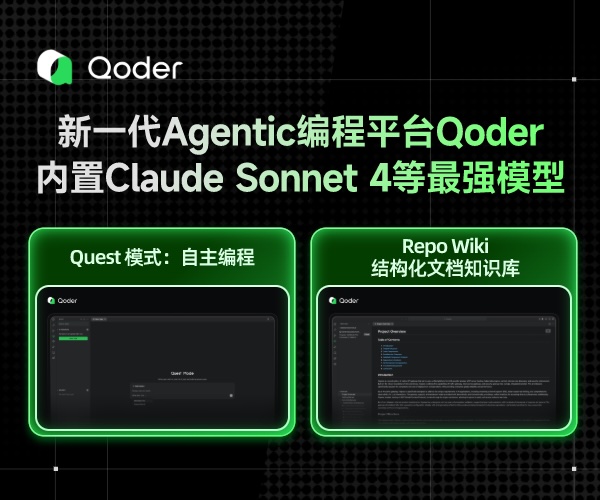/*
c语言深度剖析
第五章 内存管理
定义指针变量的同时最好初始化为NULL,用完之后也将指针设置成NULL;
heap: 由malloc系列函数或new操作符分配的内存.其生命周期由free或delete决定.
stack:效率高,但空间有限.保存局部变量.在函数内存在,函数结束,内容自动销毁.
静态区:由编译器分配,整个程序的生命周期都存在.
1结构体成员指针为初始化.
struct strdent
{
char *name;
int score;
}stu,*pstu;
int main()
{
strcpy(stu.name,"Jimy");//pstu = (struct student*)malloc(sizeof(struct student)); 结构体指针的内存
//pstu->name = (char*)malloc(strlen("Jimy")+1); 成员指针的内存
strcpy(pstu->name,"Jimy");
stu.score = 99;
//free(pstu);
return 0;
}
函数的入口校验
函数入口使用assert(NULL != p); assert 为宏 括号内为假,则终止程序,并提示错误信息
为指针分配的内存大小: 初始化为NULL
char* p2 = (char*)malloc(sizeof(char)*strlen(p1)+sizeof(char));
数组初始化:
int a[10] = {0};
memset(a,0,sizeof(a)); //sizeof(a) = 40;
内存越界:
int a[10] ={0};
for(i=0;i<=10;i++){
a[i] =i; //a[10] 越界
}
内存泄漏:
由molloc列列函数和new操作符分配的内存用完没有即时释放,直到程序终止.
(void*)malloc(int size); 如果heap剩余内存块小于malloc 函数申请的连续空间,申请失败
内存释放:
free 斩断指针变量与这块内存的关系
free 之后要把指针设为NULL;
第6 章:
函数:
每一个函数都必须都有注释,即使函数只用几行
function name:
create time:
Author:
Description:
param:
return code:
global variable:
file static variable:
function static variable:
revison history:
变量定义与函数语句之间要加空行.
采用缩进.
多文件负责本身文件的全局变量,同时提供对外函数.
不要直接读写全局变量.
void str_copy(char* strDestination,const char* strSoutce);
char c;
c = getchar(); getchar()返回一个int
if (EOF == c) EOF == -1;
{
...
}
void fun(int i)
{
if(i>0)
{
fun(i/2);
}
printf("%d/n",i);
}
第七章 文件结构
file Name:
copyright:
module Name:
第一章 关键字:
定义:编译器创建一个对象,为这个对象分配一块内存,
并给它取上名字.
regiser:请求尽量将变量存放在内部寄存器;不能用&来获取地址,不在内存中
static: 修饰变量 在内存的静态区 作用域本文件
static: 修饰函数 在本地文件可用
命名规则:
global variable g
flie static variable n
function static variable f
auto variable a
global function g
static funtion a
bit bit
b boolean
char c_variable
int i;
short s
long l
unsigned u
double d
float f
printer p
void v
enum struct union st
function point p
sizeof:
int a[100];sizeof(a)=400;
if((fTestvl >= -EPSION)&&(ftestval <=EPSION)
长循环在最内层,效率高
int a[col][row]={0};
for(col=0;col<5;col++)
for(row=0;row<100;row++)
sum=sum+a[col][row];
半开半闭:
for(n=0;n<10;n++)
闭区间
for(no=0;n<=10;n++)
const int N=5;
编译器通常不会为普通的const只读变量分配内存
声明外部变量:
extern int i;
编译器认为任何一种数据类型都有大小,用它来定义变量能够分配足够大小的空间
static int j;
void fun1(void)
{
static int i=0;
i++;
}
void fun2(void)
{
j=0;
j++;
}
int main()
{
int k=0;
for(k=0;k<10;k++)
{
fun1();
fun2();
}
return 0;
}
i ==10; j==0;
typedef int a[10] 相当于数组类型a
a b[10] == int b[10][10]
1 编译后注释会被空格替换
y=x/ *p
符号:
0x01 << 2+3 =32
q = a/b;
r=a%b;
第三章 预处理
#error error-message
#define SQR(x) printf("The square of "#x" is %d \n",((x)*(x)))
int* p=NULL 和*p=NULL
*p=NULL; p指向内存的赋值为NULL
int i=10;
int *p = (int*)0x12ff7c; p----->0x12ff7c
*p =NULL; *p----->10--->NULL
p=NULL;
数组:
int a[5] = {1,2,3,4,5};
&a+1 取数组a的首地址加sizeof(a)即 a+ 5*sizeof(int)
#include <stdio.h>
#include <assert.h>
#include <stdlib.h>
typedef struct st_type{
int i;
int a[];
}type_a;
int my_strlen(const char* strDest)
{
assert(NULL != strDest);
if('\0' == *strDest) //记得加*
{
return 0;
}
else
{
return (1+my_strlen(++strDest));
}
}
int my_strlen(const char* strDest)
{
assert(strDest);
return ('\0' != *strDest)?(1+my_strlen(strDest+1)):0;
}
*/
#include <stdio.h>
#include <assert.h>
#include <stdlib.h>
int main()
{
//type_a* p =(type_a*)malloc(sizeof(type_a)+100*sizeof(int));
char a[5]={'A','B','C','D','E'};
char (*p3)[10] = &a; //整个数组的首地址
char (*p4)[10] = a; //a 单个字符的指针
printf("%c\n",*(p3+1));
printf("%c\n",*(p4+1));
return 0;
// register a=10;
// printf("%p",&a);
const char *str = "hello!";
int cData = my_strlen(str);
fprintf(stdout,"%d\n",cData);
//fprintf(stdout,"%d\n",EOF); EOF =-1;
char *p=(char*)malloc(10);
printf("%p\n",p);
fprintf(stdout,"%s\n",p);
strcpy(p,"hello");
fprintf(stdout,"%s\n",p);
free(p);
// fprintf(stdout,"%s\n",p); //错误操作
// int a=9;
int b[10]={0};
fprintf(stdout,"%d\n",sizeof(b));
// assert(NULL != p);
printf("Hello World!\n");
return 0;
}



 浙公网安备 33010602011771号
浙公网安备 33010602011771号